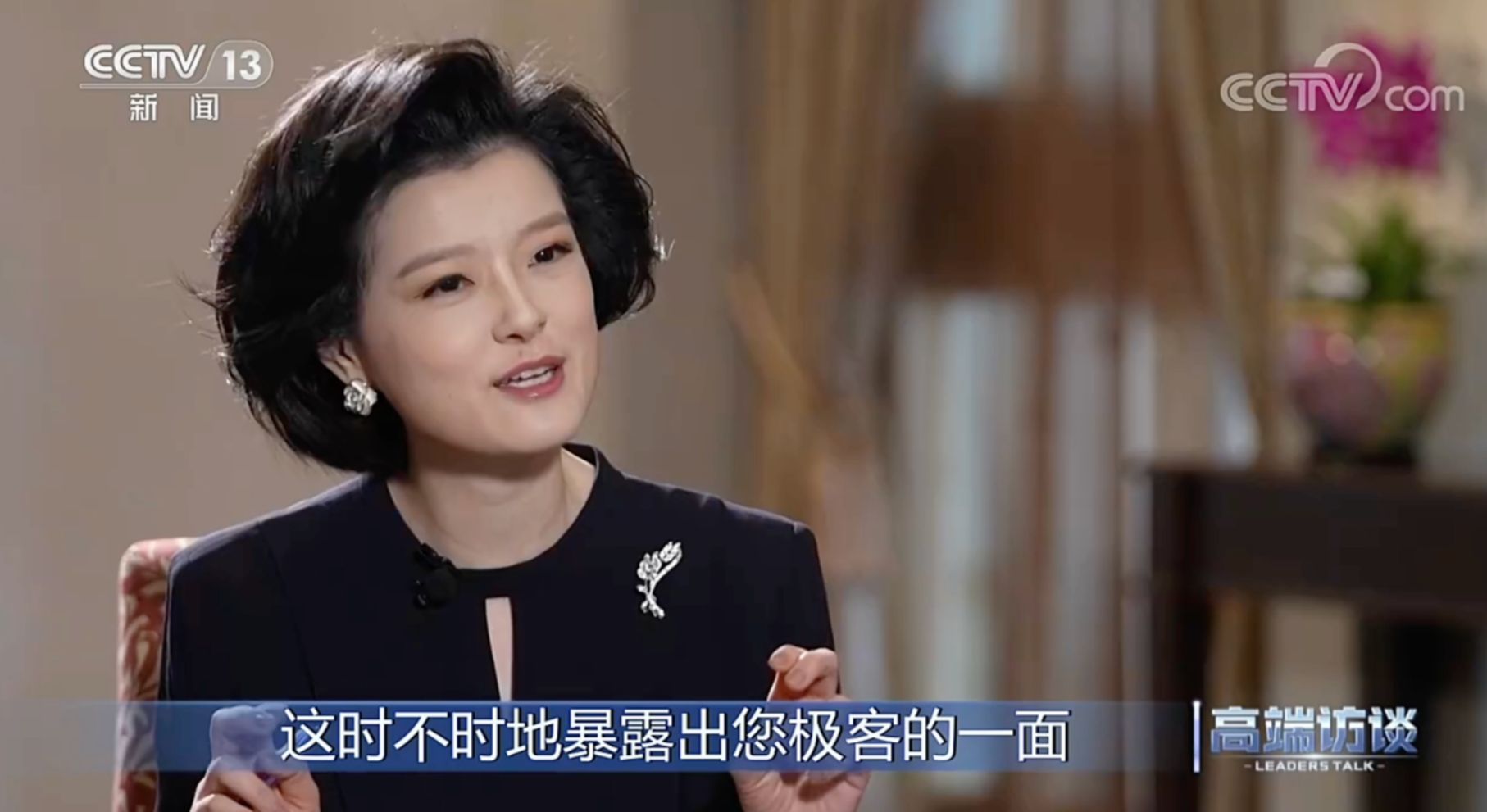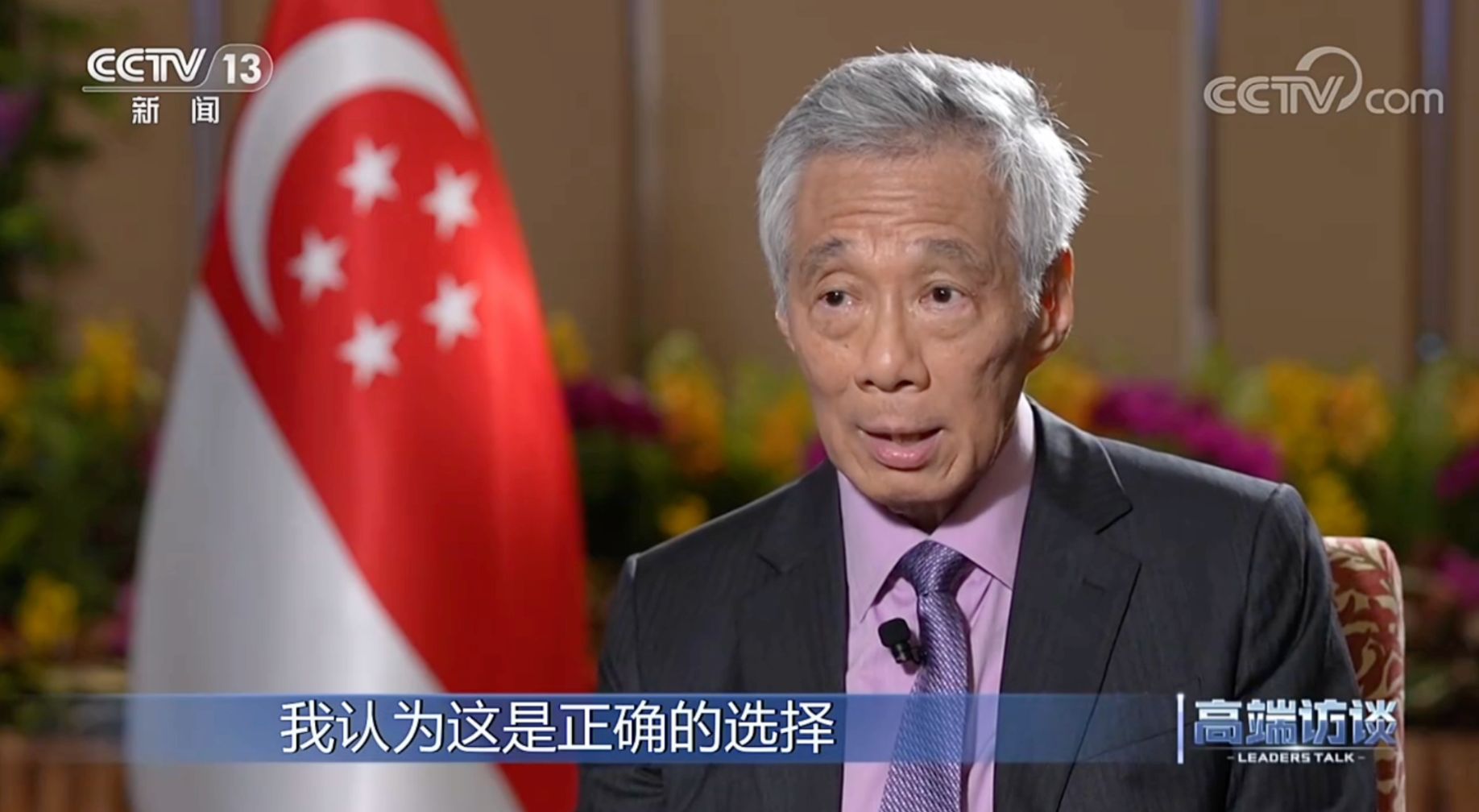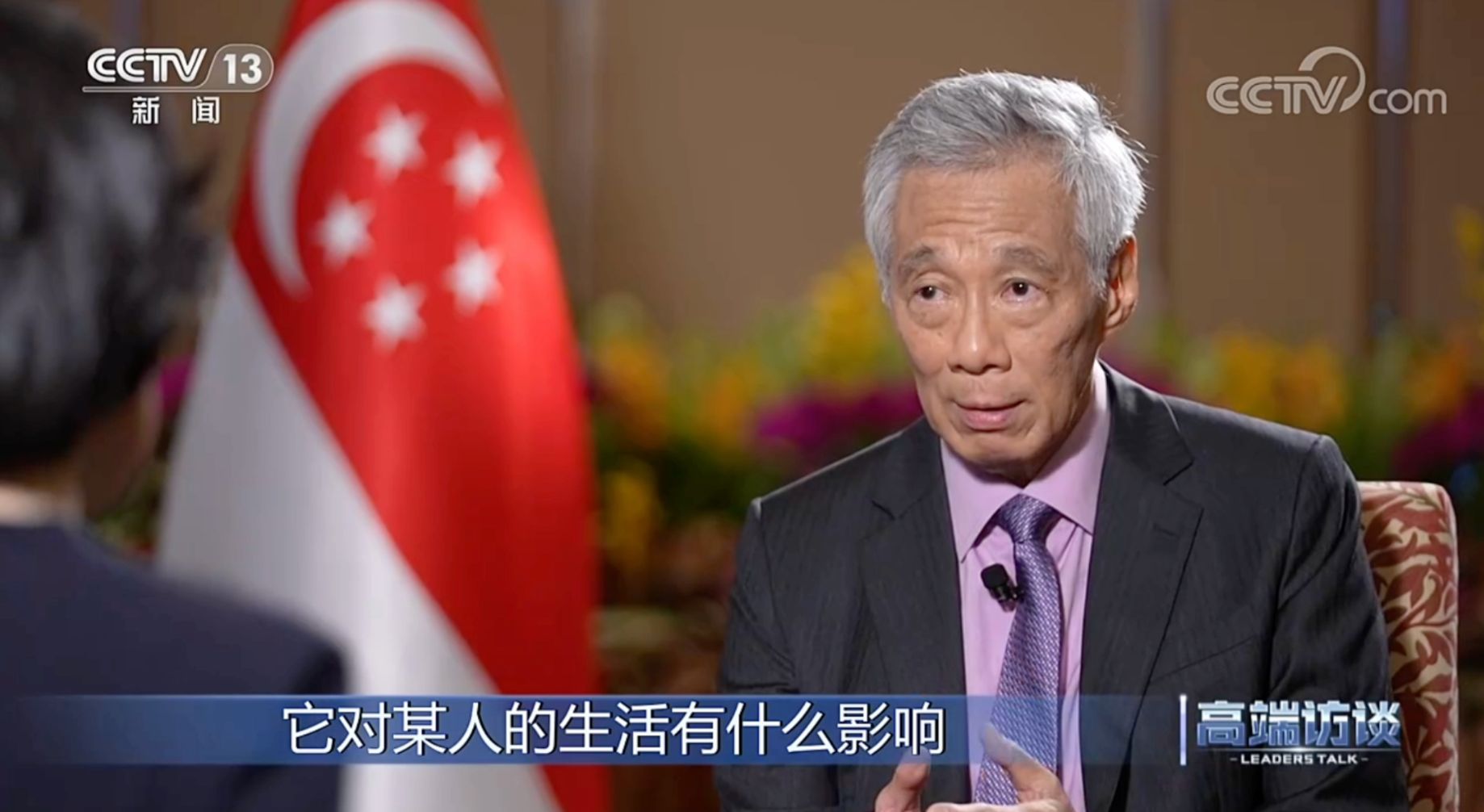Follow us on Telegram for the latest updates: https://t.me/mothershipsg
Appearing on China state media CCTV's "Leaders Talk" show on Mar. 24, Prime Minister Lee Hsien Loong spoke at length about his view on world affairs, his vision for Singapore, the philosophy of governance and leadership, and his thoughts about social media and the new generation.
PM Lee was interviewed by the host Esther Zou Yun, and the interview was conducted in the Istana.
Asked about his "geeky side"
Zou pointed out that Singapore's media (including Mothership) had reported that PM Lee has a "geeky side" with his passion for mathematics, even spending time during vacation to look into unsolved mathematical problems.
 Screenshot of CCTV's broadcast
Screenshot of CCTV's broadcast
PM Lee holds a Bachelor of Arts with a first-class honours degree in Mathematics, a Diploma (now equivalent to a Master's degree) in Computer Science and a Master of Public Administration degree.
While still an undergraduate at Cambridge in 1973, he was awarded Senior Wrangler for being top of the Mathematics cohort.
Zou said that professors had felt it was a pity PM Lee didn't become a mathematician because he was a rising star in the world of mathematics.
No regrets giving up maths to return to Singapore
She asked PM Lee if he ever regretted not becoming a mathematician instead of becoming a politician.
PM Lee, who entered politics in 1984 at the age of 32, becoming the MP for Teck Ghee, replied:
"I do not regret. I was not a rising star. I was a promising student."
 Screenshot of CCTV's broadcast
Screenshot of CCTV's broadcast
"You are being modest", Zou commented.
PM Lee explained that Mathematics is "a vast field", and he only did two undergraduate years in Mathematics, so he was "barely at the foothills", and there are many more talented and brilliant mathematicians in the world than him.
"I decided that I had the responsibility to come back to Singapore, be part of Singapore, and do what I could to help the country to succeed. It is a small country, it was at that time a very new country – the first few years of independence, and every bit of every person who could make a difference should make a difference.
I thought I would like to do that and do my best, and I think that is the right thing to do."
 Screenshot of CCTV's broadcast
Screenshot of CCTV's broadcast
People are never just numbers
PM Lee continued to say that his life has been very fulfilling, that he first served in the armed forces and since then been in Government for nearly 40 years.
He also said it is "tremendously, intellectually stimulating" because he has to deal with a vast range of issues, some of them quantitive.
Zou pointed out to PM Lee, "Which is what you are good at, all those numbers. Right?"
"No, but then you see it is never just numbers.
The numbers have to work, but you must be able to make it work in terms which people can understand, accept and want to see."
PM Lee then listed a series of issues he had to consider aside from numbers, which he said are often "intangible" and "difficult to settle".
"What difference does it make to somebody's life? Why does it matter to them? Why does it matter to us? Which ones should go first? Is it more important to build more houses first? Is it more important to have less social impact from migrant workers in the country? Is it more important to grow faster, or maybe to pay more attention to social welfare issues and accept lower growth in order to have less pressure on the people?"
 Screenshot of CCTV's broadcast
Screenshot of CCTV's broadcast
Many issues have no permanent solutions
He said these issues often have no permanent solutions.
"You cannot say, "done, proven, QED, put aside, next problem." You cannot say, "check, done." These are issues which will come back over and over again, year after year, in different forms. You solve it, some other issue will take its place or this will come back in a different way.
China has the same situation."
Zou remarked, "Same with every country."
PM Lee continued to explain:
"You solve the problem of poverty, then you have the question of inequality, you address that.
But there is never any point where you can say, "My job is done".
And to get it done, it is not just the intellectual problem of which is the right solution, but it is also the people challenge – That you have to persuade people, you have to mobilise them, you have to get them to trust you, then you have to make things happen, and make people believe that they can do things, which they may not have believed that it was possible for them to do."
Gaining people's trust is an unending task
Zou then asked," How do you get your people to trust you, Mr Prime Minister? It is very tough, right? "
PM Lee replied:
"It is an unending task. But after many years, having been in the public eye for many years, people know you and they have seen you. They have seen your conduct, they have heard what you have said. "
Zou asked, "What vision do you have for the future of your country?"
PM Lee answered:
"We have built a country which has increasingly had a sense of nationhood and identity. It has prospered now for more than one generation, and what we would like to see is that it can continue to evolve and develop into the future, keeping up with the times, but at the same time maintaining the values, instincts and culture, which have made us unique and successful.
So that is quite hard, you have to keep up with what is happening, but at the same time, you must not forget what made this place tick."
Vision for Singapore
The Prime Minister's Office issued a full transcript of the interview.
In the transcript, PM Lee elaborated about his vision for Singapore.
"Sometimes when you have something new happen in the world, you think, "wow, the world has completely changed", and then you think maybe we can forget about all the old issues and concerns which we had, which we took account of as we came here, and that may or may not be true.
So how to remember that some things do not change – that we are still small, we are still vulnerable, we still have to work hard, we still need to make friends, and we still need to stay together as one Singapore.
That is something which we work at. We work at it in our schools, with our national servicemen when they serve in the army or in the security forces or civil defence forces, but it is something which you have to keep on conveying from generation to generation.
If we can do that, then Singapore will be successful."
PM Lee & social media
In the full interview, PM Lee was also asked about social media.
Zou pointed out that PM Lee had celebrated his 10th anniversary on social media last year and said that people love his posts and photos that he took so much that some even say he can "moonlight as a professional photographer".
PM Lee replied jokingly, "I will starve."Zou then invited PM Lee to have an online interaction session with the Chinese netizens.
PM Lee said he did a one-and-a-half-hour interactive online interview on social media through text messages once, but the people who asked questions were mostly from Singapore. He thought that if he did the same thing in China, he will be" overwhelmed".
Zou asked if language is the issue, but PM Lee said, "No, because online, people have all sorts of questions. Some of them are very far out of the box and make you think."
Reaching out to a new generation
She then commented that experience on social media could be "fun, surprising, instructive, and at times bewildering" and asked PM Lee, "Very mixed feelings, huh?"
PM Lee answered:
"Yes. Because the idea is to reach out to a new generation. A group which is not likely to be reached by the standard means. If you make a speech, they are not there listening to you. If you put it on television, quite a number will see, but not everybody will watch. If it is a long or complicated message, that is even harder to get across."
He explained that with social media, to reach a different crowd, you have to package your message in a different way.
"500 to 1,000 words, in-depth analysis – it is not possible. But one snippet here, one nugget there, a picture which tells a story, you hope to get some of the messages across, to get them to understand, and we hope to get them on my side. "
Related Story
Top image via screenshot of CCTV's broadcast with credit to MCI
If you like what you read, follow us on Facebook, Instagram, Twitter and Telegram to get the latest updates.
